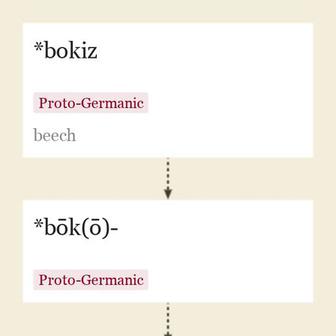book-plate n.
"
Entries linking to book-plate

Middle English bok, from Old English boc "
Latin and Sanskrit also have words for "
The sense gradually narrowed by early Middle English to "
The use of books or written charters was introduced in Anglo-Saxon times by the ecclesiastics, as affording more permanent and satisfactory evidence of a grant or conveyance of land than the symbolical or actual delivery of possession before witnesses, which was the method then in vogue. [Century Dictionary]
From c. 1200 as "
mid-13c., "
From 14c. as "
In photography, "
updated on October 10, 2017